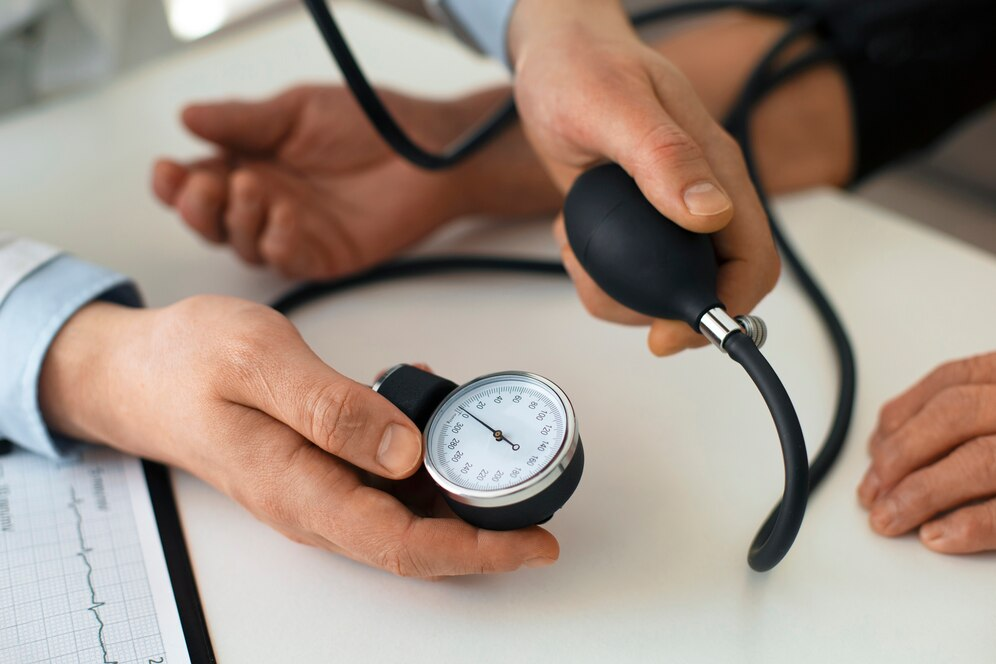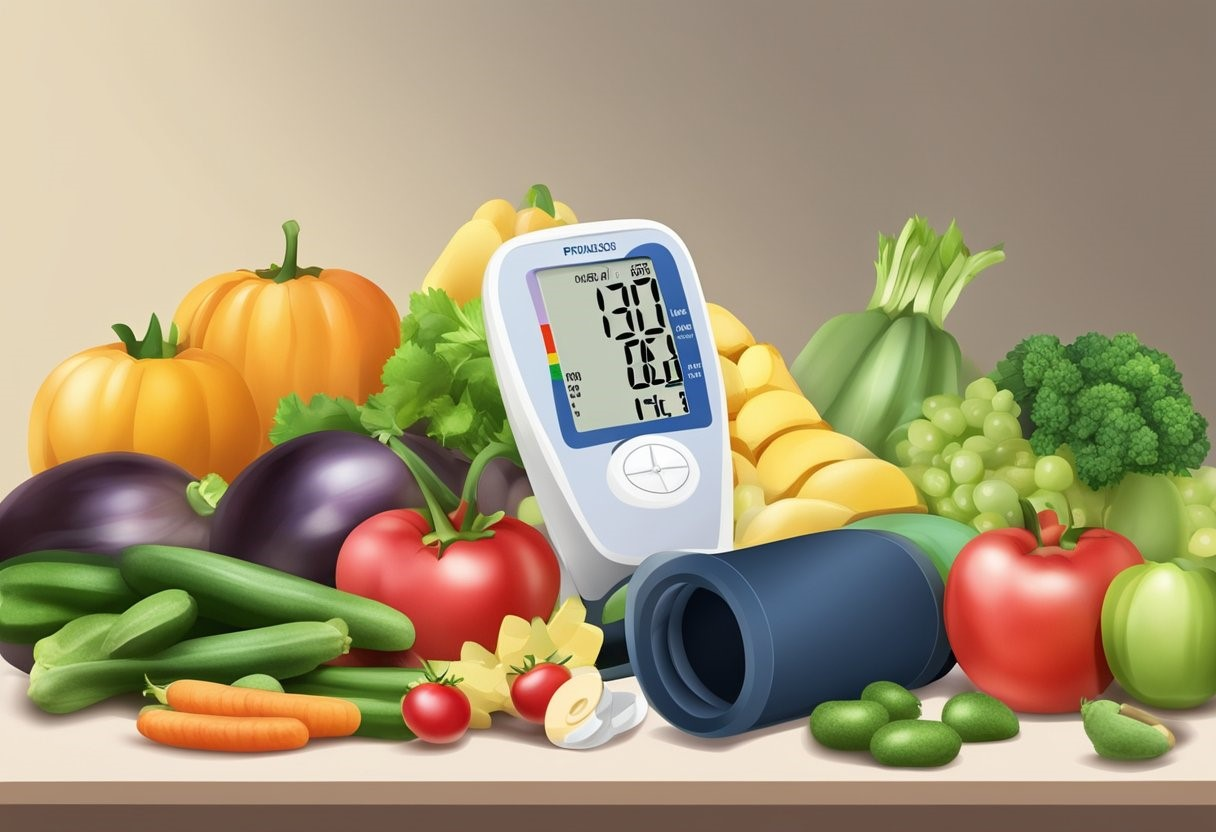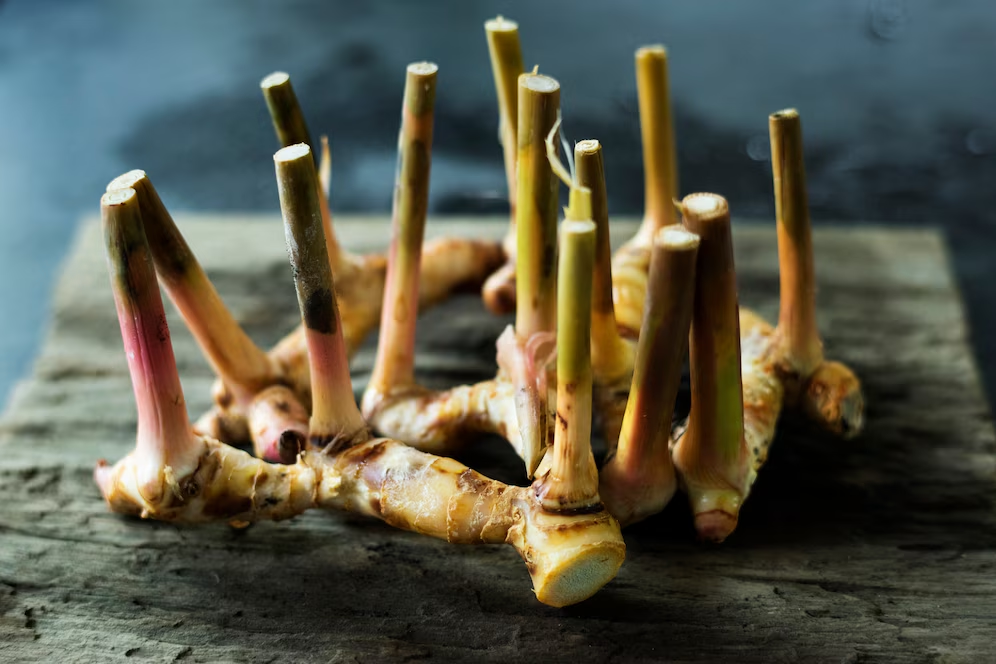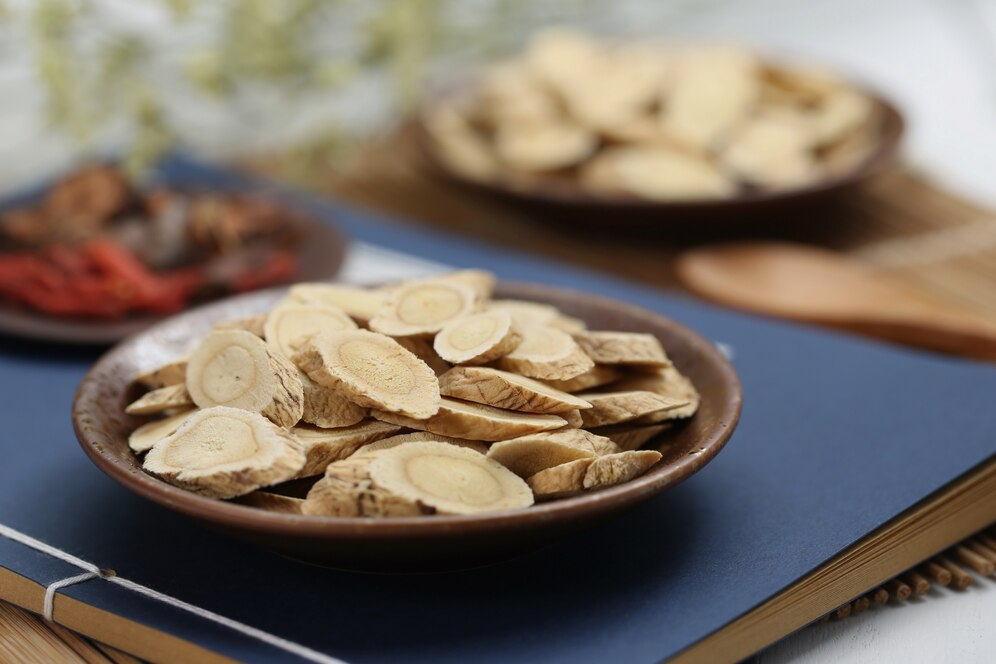









Free Shipping (WM) | Sign Up Biobay Membership for Free 50 Points & Exclusive Benefits
High blood pressure, or hypertension, is a common health issue in Malaysia, affecting millions of adults. Many Malaysians remain unaware of their condition until complications arise. If left uncontrolled, it can lead to serious problems like heart disease, stroke, and kidney failure. While medications help manage hypertension, many people look for natural supplements for high blood pressure and help regulate their blood pressure levels safely and holistically. In this article, we’ll explore the supplements for high blood pressure, including essential vitamins, minerals, and herbal remedies, and lifestyle tips.
- High blood pressure is a silent threat that increases the risk of heart disease, stroke, and kidney damage if left unmanaged.
- Many people turn to natural supplements to support blood pressure control, but they should be used alongside medication and lifestyle changes.
- Supplements like potassium, magnesium, omega-3, garlic extract, and CoQ10 can help regulate blood pressure and improve circulation.
- Herbs like Misai Kucing, Tongkat Ali, Bitter Gourd, and Pegaga have long been used in Malaysia for blood pressure support and overall wellness.
- Ginseng, caffeine-based supplements, St. John’s Wort, licorice root, and Yohimbine may raise blood pressure or interfere with medication.
- A balanced diet, regular exercise, stress management, and avoiding smoking/alcohol are key to long-term heart health and blood pressure control.

Hypertension, or high blood pressure, happens when the force of blood against artery walls is too high. A normal blood pressure reading is below 120/80 mmHg, while hypertension is diagnosed when readings are consistently 140/90 mmHg or higher.
Several factors can contribute to hypertension, including:
- Unhealthy diet: High salt, processed foods, and excessive sugar intake.
- Lack of exercise: A sedentary lifestyle weakens heart function.
- Obesity: Excess weight puts more strain on the heart.
- Smoking & alcohol: Both can damage blood vessels.
- Chronic stress: Stress hormones can cause long-term blood pressure spikes.
- Genetics: Family history plays a role in hypertension risk.
If not managed, high blood pressure can lead to:
- Heart disease: Increased risk of heart attack and heart failure.
- Stroke risk: High pressure can cause arteries to burst or become blocked.
- Kidney damage: Weakens kidney function over time.
- Vision loss: Affects blood flow to the eyes.
- Cognitive decline: Linked to dementia and memory loss.
Hypertension is often called the “silent killer” because it may show no symptoms until complications arise. That’s why early prevention and control—through lifestyle changes, medications, and supplements—are crucial for maintaining good health.
Many people turn to dietary supplements to help manage high blood pressure naturally. While medications are essential for those with hypertension, supplements can offer additional support by improving heart health, reducing inflammation, and promoting better blood circulation.
- Natural Support: Supplements provide essential vitamins, minerals, and plant-based compounds that support blood pressure reduction and help maintain healthy circulation.
- Fewer Side Effects: Unlike some medications, many natural supplements have minimal side effects when taken correctly.
- Supports Overall Heart Health: Some supplements help with blood pressure, lower cholesterol, reduce inflammation, and improve circulation.
Individuals can support their blood pressure control efforts by choosing the right supplements while improving overall heart health and well-being.

Several vitamins, minerals, and herbal extracts have been shown to help regulate blood pressure naturally. These supplements promote blood vessel relaxation, reduce inflammation, and enhance heart function for better cardiovascular health.
Below are some of the most effective high blood pressure supplements, including vitamin for healthy blood pressure, and their benefits.
Potassium balances sodium levels and relaxes blood vessels, helping to lower blood pressure.
In a 2024 cross-sectional study of 10,031 Malaysian adults, the average dietary potassium intake was 2.3 grams daily. The study found that individuals with hypertension had a significantly lower potassium intake (2.3 g/day) than those without hypertension (2.4 g/day).
The recommended intake is 2,500–3,000 mg daily, sourced from bananas, spinach, and sweet potatoes.
Magnesium supports endothelial function, helping to relax blood vessels and regulate blood pressure.
A daily intake of 300–400 mg from nuts, seeds, and whole grains has been linked to lower systolic and diastolic pressure, as a 2024 cross-sectional study, shows that hypertensive individuals tend to have significantly lower magnesium levels.
Omega-3 reduces inflammation and supports heart function.
A daily dosage of 1,000–2,000 mg of fatty fish, flaxseeds, or supplements has been shown to lower triglycerides and stabilise blood pressure.
Want to know how Omega 3 oil benefits heart health, reduce inflammation, and support overall well-being? Discover its powerful benefits today!
Garlic contains allicin, which promotes vasodilation and better circulation.
A 2019 meta-analysis of 12 trials involving 553 hypertensive participants found that garlic supplements lowered systolic blood pressure by an average of 8.3 mmHg and diastolic pressure by 5.5 mmHg, with effects comparable to standard antihypertensive medications.
The recommended intake is 600–1,200 mg daily through supplements or raw garlic.
CoQ10 aids cellular energy production and heart health.
A 100–200 mg daily dose of fatty fish, organ meats, or supplements helps lower blood pressure and improve vascular function. The analysis revealed a U-shaped dose-response relationship, indicating that this specific dosage range yielded the most substantial SBP reduction.
Vitamin D regulates calcium and cardiovascular health.
The National Academy of Medicine recommends a daily intake of 600 IU for individuals aged 1–70 and 800 IU for those over 70, sourced from sunlight exposure, fortified dairy products, and supplements.
Beetroot is high in nitrates, which dilate blood vessels.
Drinking 250–500 ml of beetroot juice daily can reduce blood pressure within hours, as indicated by a 2018 comprehensive analysis of randomised clinical trials.
Hibiscus tea contains antioxidants that relax blood vessels.
Consuming 1–3 cups daily has been clinically proven to lower systolic blood pressure by approximately 7.92% from baseline.
Select high-quality, clinically tested supplements and consult a doctor before use, especially if taking medication.

Malaysia has a rich history of using traditional herbs and natural remedies to manage various health conditions, including high blood pressure. Many of these herbs are known for their anti-inflammatory, diuretic, and cardiovascular benefits, making them popular choices for those seeking natural ways to support heart health.
Below are some of the most commonly used traditional Malaysian herbs for hypertension.
The findings in a study published in the Molecules journal suggest that Misai Kucing’s antioxidants enhance nitric oxide production, protecting against oxidative stress—a key factor in cardiovascular disease.
Misai Kucing, known as Cat’s Whiskers, is widely used in Malaysian herbal medicine to reduce blood pressure and improve kidney function.
It acts as a natural diuretic, promoting sodium excretion and fluid removal, which helps lower blood pressure.
How to Use: Brew the dried leaves into a herbal tea and drink it once or twice daily.
A study involving 63 moderately stressed adults who consumed 200 mg of Tongkat Ali extract daily for four weeks demonstrated significant improvements in mood parameters, including reduced tension, anger, and confusion.
While Tongkat Ali is best known for its energy-boosting and testosterone-enhancing properties, it may also have vasodilation effects, which help improve blood circulation and regulate blood pressure.
How to Use: Often consumed as a herbal tea or in capsule form. Ensure proper dosage, as high doses may cause side effects.
A systematic review and meta-analysis of randomised clinical trials reported reductions in systolic and diastolic blood pressure.
Bitter gourd, known as Peria in Malaysia, has been traditionally used to lower blood sugar levels. It contains antioxidants and bioactive compounds that may support heart health.
How to Use: Bitter gourd can be juiced, stir-fried, or added to soups for daily consumption.
Lokanathan et. al. (2023) research on pegaga indicated that it supports cardiovascular health by reducing stress-related factors that contribute to hypertension.
Pegaga, or Gotu Kola, is a well-known Malaysian herb for its calming and circulatory benefits. It is believed to improve blood vessel function, reduce swelling, and promote better oxygen flow in the bloodstream, which may aid in lowering high blood pressure.
How to Use: Often taken as fresh juice, in herbal capsules, or brewed into tea.
The clinical trials by Hasani et al. (2019) show significant reductions in systolic and diastolic blood pressure in participants aged 50 or younger.
Ginger has been used for centuries in traditional Malaysian medicine due to its anti-inflammatory properties. It can help relax blood vessels, improve circulation, and lower cholesterol levels, which in turn improves blood pressure regulation.
How to Use: Fresh ginger can be boiled into tea, added to meals, or consumed as a supplement.

While many supplements can help regulate blood pressure, some may have unintended effects, especially when taken in high doses or alongside medication. Certain natural supplements can raise blood pressure, interact with medications, or cause adverse side effects.
Here are some supplements that individuals with hypertension should use with caution.
|
Supplement |
Details |
Recommendation |
|
Ginseng |
Used for energy and immune support, but certain types, like Panax ginseng, may increase blood pressure and interfere with hypertension medications. |
Consult a doctor before use, especially if taking antihypertensive drugs. |
|
Caffeine-Based Supplement |
Found in energy drinks, weight loss pills, and pre-workout formulas. Caffeine constricts blood vessels, increases heart rate, and temporarily raises blood pressure. |
Limit caffeine intake and monitor blood pressure response. |
|
St. John’s Wort |
enhancement and stress relief, but it reduces the effectiveness of blood pressure medications, leading to higher blood pressure. |
Avoid taking hypertension medication; consult a doctor before use. |
|
Licorice Root |
Found in herbal teas and digestive supplements. Contains glycyrrhizin, which raises sodium levels and lowers potassium, causing fluid retention and increased blood pressure. |
Choose deglycyrrhizinated licorice (DGL) or avoid it if you have hypertension. |
|
Yohimbine |
Marketed for performance enhancement and fat burning, but it stimulates the nervous system, leading to increased heart rate and higher blood pressure. |
Avoid it if you have hypertension or heart conditions. |
Note: Supplements are meant to support a healthy lifestyle, not replace medical treatment. Always consult a healthcare professional before taking new supplements, especially if you have existing health conditions or take medication.

Managing high blood pressure goes beyond supplements—it requires a holistic lifestyle approach that includes healthy eating, physical activity, stress management, and regular monitoring.
Here are some essential lifestyle changes that can help support heart health and maintain optimal blood pressure levels.
|
Lifestyle Tip |
Details |
|
Adopt a Heart-Healthy Diet |
Eat more fruits, vegetables, whole grains, and lean proteins. Include healthy fats like omega-3 from fish and nuts. Avoid excess salt, sugar, and processed foods. |
|
Reduce Salt and Processed Foods |
Excess sodium causes water retention and higher blood pressure. Limit salt intake to less than 5g (1 teaspoon) per day. Use herbs and spices for flavor and choose fresh foods over processed ones.
|
|
Exercise Regularly |
Engage in aerobic activities (walking, cycling, swimming) for 30 minutes, 5 days a week. Include strength training (2–3 times weekly) and yoga/stretching to improve circulation.
|
|
Maintain a Healthy Weight |
Extra weight puts strain on the heart. Losing just 5–10% of body weight can help lower blood pressure and improve heart health. Focus on balanced eating and staying active.
|
|
Manage Stress Effectively |
Chronic stress raises cortisol levels, which can increase blood pressure. Reduce stress through meditation, deep breathing, spending time in nature, and hobbies that boost melatonin.
|
|
Avoid Smoking and Limit Alcohol |
Smoking damages blood vessels and increases blood pressure—quitting improves circulation. Limit alcohol to 1 drink/day (women) or 2 drinks/day (men) to prevent heart strain.
|
|
Monitor Blood Pressure Regularly |
Check blood pressure at home or with a doctor. Regular monitoring helps detect early warning signs and allows for timely intervention. |
Maintaining healthy blood pressure and overall heart health requires taking supplements and adopting a holistic approach that includes a balanced diet, regular exercise, stress management, and informed supplement choices.
Throughout this guide, we’ve explored effective high blood pressure supplements, traditional Malaysian herbs, lifestyle changes, and how to choose the right supplements safely. While natural remedies can offer valuable support, they should always be used alongside medical advice and a healthy lifestyle.
At Biobay, we are committed to providing trusted, science-backed supplements to support long-term overall health and well-being.
Want to learn more? Contact Biobay today for expert guidance on choosing the right supplements for your health needs!
